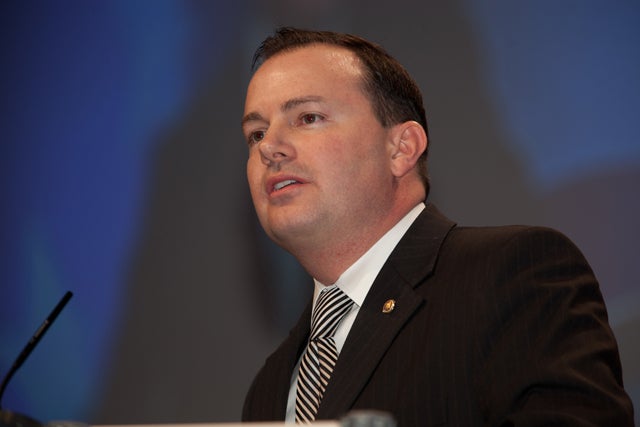Changing the Transportation Status Quo: Empowering the States
Emily Goff /
Senator Mike Lee (R–UT) and Representative Tom Graves (R–GA) have introduced twin bills (S. 1702 and H.R. 3486) called the Transportation Empowerment Act (TEA), which would phase out the federal gas tax that motorists pay at the pump and empower the states to manage their surface transportation.
Congestion in the country’s metropolitan areas causes average annual delays equivalent to more than a full work week, yet federal micromanagement and regulations prevent states from spending resources on programs that would relieve congestion. Because TEA recognizes that states best know their transportation priorities, it would allow reform-minded state transportation officials to prioritize programs that reduce congestion, enhance mobility, and improve safety.
Beginning in fiscal year (FY) 2015, the bill would lower the federal gas tax and turn this authority over to the states. The gas tax would decrease from 18.3 cents per gallon to 9.6 cents in FY 2016, then to 6.4 cents in FY 2017, 5.0 cents in FY 2018, and ultimately in FY 2019 to 3.7 cents. These federal taxes would no longer be necessary as states would take control of paying for and managing most surface transportation projects; thus the federal role would be very limited in the end.
States would be free to increase their state gas taxes or implement alternative revenue collection mechanisms—whatever works best for their citizens. Maryland, Virginia, Arkansas, Wyoming, and Michigan are already pursuing increasing their state gas taxes or dedicating sales tax revenue to pay for transportation projects; their motorists and citizens will be able to keep their state officials accountable for how the money is spent—much more so than Washington bureaucrats.
The failures of Washington’s one-size-fits-all approach illustrate the need to change course. TEA states:
[T]he Federal Government has used the Federal motor fuels tax revenues to force all States to take actions that are not necessarily appropriate for individual States; the Federal distribution, review, and enforcement process wastes billions of dollars on unproductive activities.
Under the current highway bill, Moving Ahead for Progress in the 21st Century, at least 25 percent of authorized funding for FY 2013 was diverted to non-general purpose roads and bridges. Transit, the largest diversion, received $8.5 billion, or 17 percent, of authorized funds. Other diversions include $809 million authorized for the transportation alternatives program (TAP), which pays for bicycle and nature paths, sidewalks, and community preservation activities, none of which reduce congestion or improve mobility for the motorists paying for them.
TEA would transfer the money in the Mass Transit Account within the Highway Trust Fund to the Highway Account, and it would repeal TAP. States that want to can continue these programs; others could instead spend their funds on repair and capacity expansion projects that they value more.
Senator Lee and Congressman Graves have offered the federal government a timely proposal for turning responsibility for roads, bridges, and transit systems back to the states—one that avoids a federal tax hike and empowers states to make necessary repairs and expand their road, bridge, and transit capacity in ways that best serve their transportation needs.

